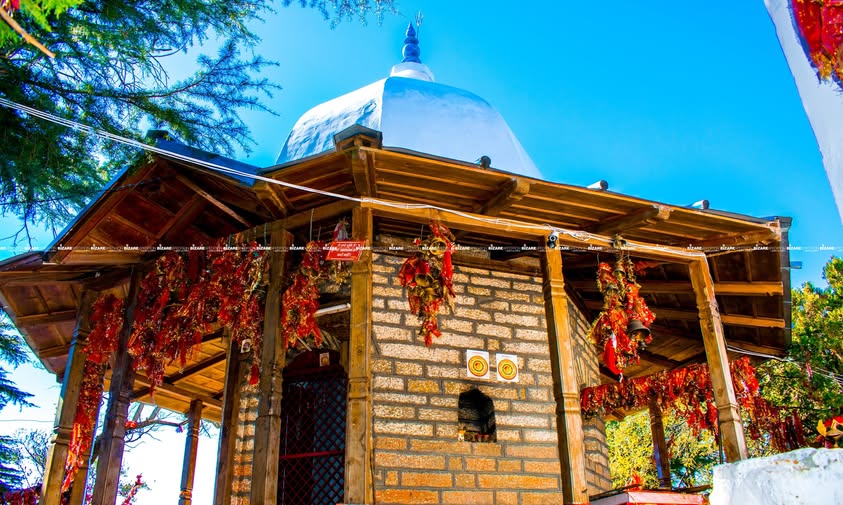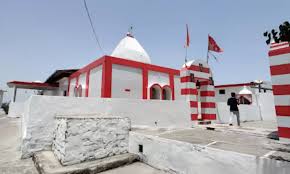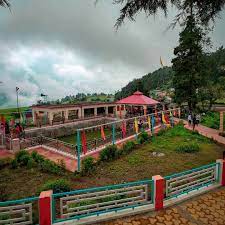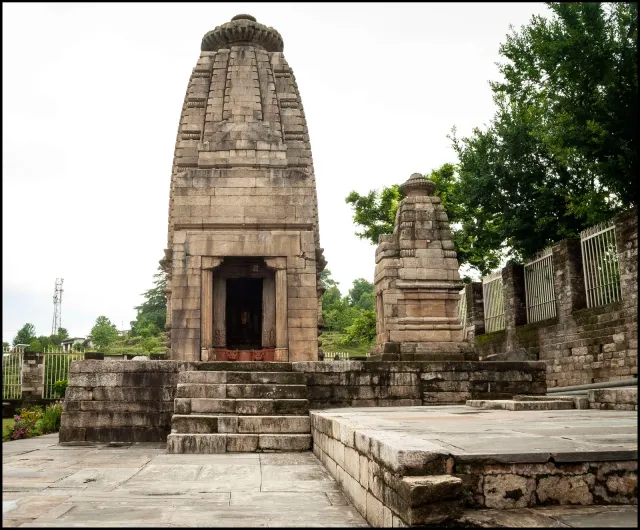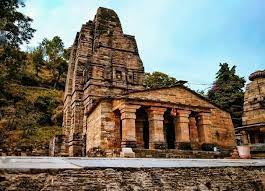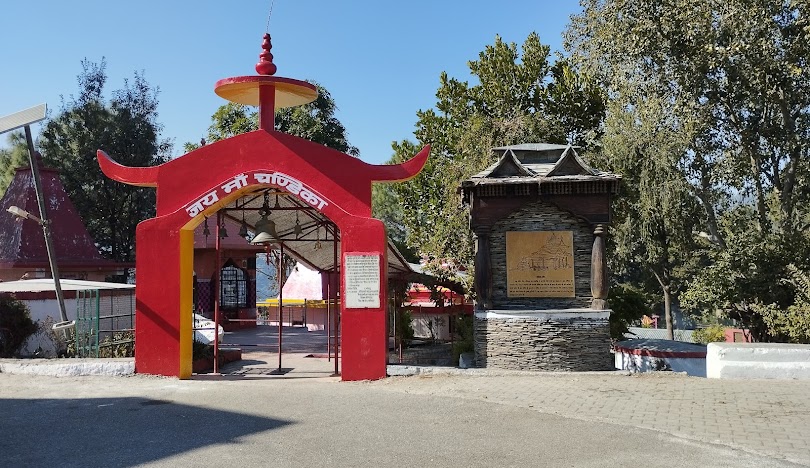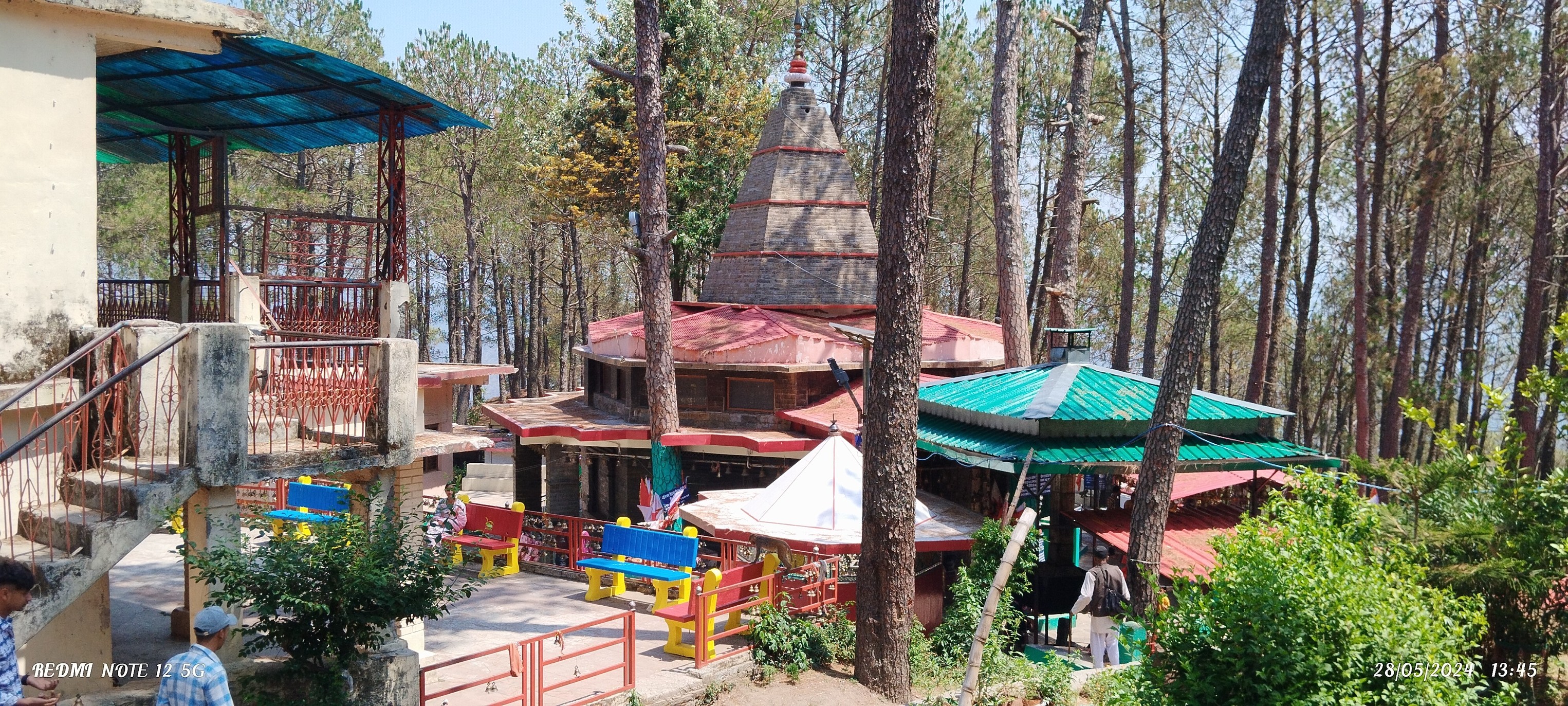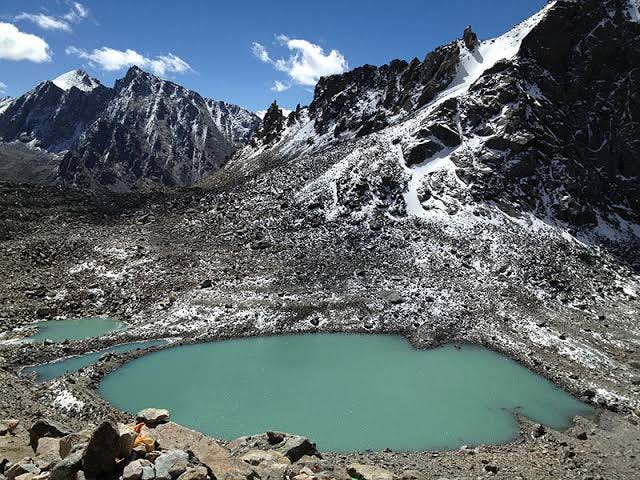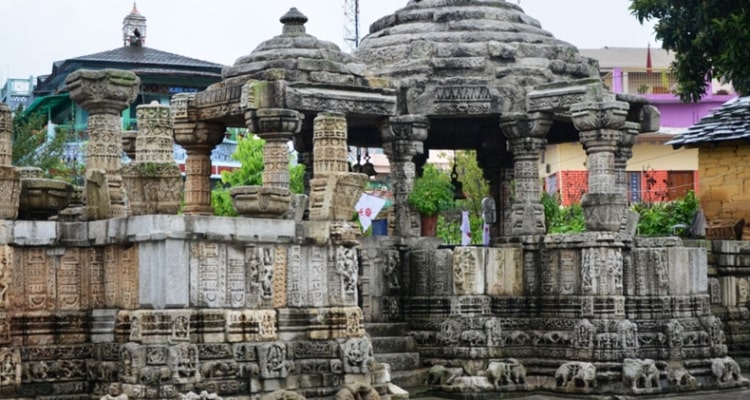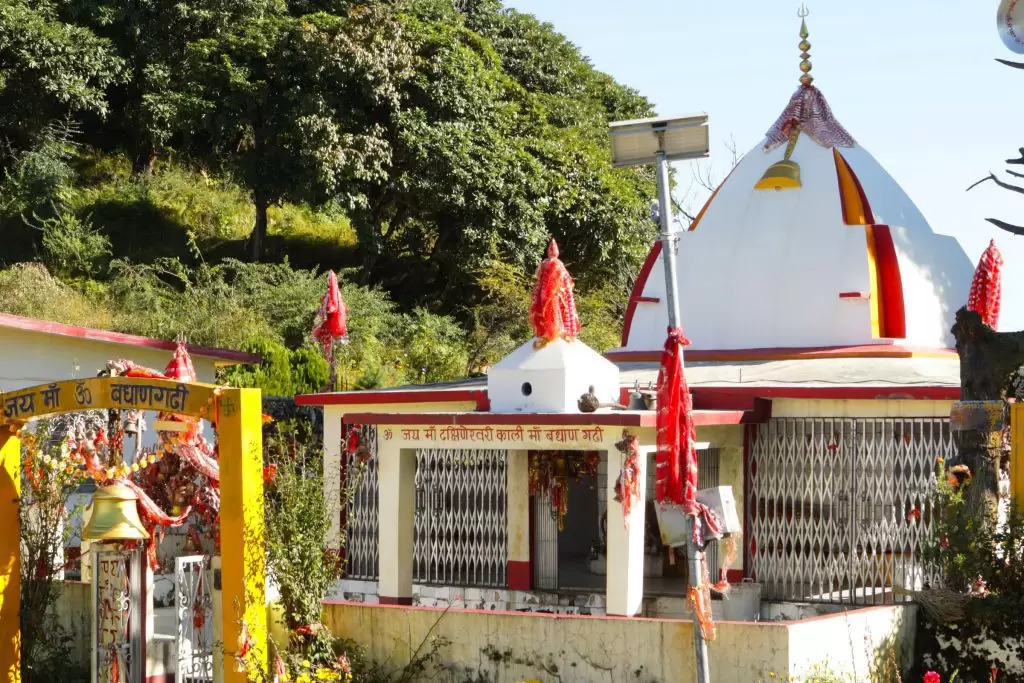The road to Mukteshwar keeps climbing. Pine timber lines the bends, tall and whispering inside the wind. At some point, you forestall noticing the site visitors under and recognize the air has changed, less warm, sharper, with that faint odor of resin. Right on the pinnacle of this hill, almost hidden in the recesses of the wooded location, sits Mukteshwar Temple (मुक्तेश्वर मंदिर).
It’s an antique shrine, stated to be more than 350 years old. Nobody here tells you exact dates, they just say, “बचपन से देख रहे हैं इस मंदिर को… और हमारे बाप-दादा भी।” That’s how history lives here, not in textbooks, but in memory.
A Name With Weight
The name tells its own story. “Mukteshwar” means the Lord of मुक्ति, the giver of liberation. The local tale says Shiva killed a demon on this hill and, instead of punishing him further, gave him release from rebirth. Strange, isn’t it? Victory in the story is not in destruction, but in forgiveness.
Inside the sanctum, a simple शिवलिंग rests, carved in white marble. A copper yoni wraps around it, polished bright from centuries of hands pouring जल and दूध over it. Around Shiva are a few smaller idols, but the space is tiny, dark, and utterly focused. The walls carry the weight of oil smoke and whispered prayers.
First Steps Inside
Climbing the last few stone steps, you leave your shoes outside. The floor feels cold, even in June. A priest mutters mantras under his breath, more for himself than for you. A woman ties a लाल धागा, eyes closed, lips moving fast as if afraid she’ll forget her own words. Someone else pours गंगाजल over the lingam, careful not to spill too much.
It’s quiet, but not empty. Birds name in the trees, a bell rings as soon as, after which the silence folds itself over the entirety. If you stand long enough, you begin to sense your personal respiration slow down.
When Devotion Overflows
Most days, Mukteshwar Temple is a notable location. But in the course of महाशिवरात्रि, the courtyard is alive. Villagers arrive in organizations, wearing milk and flowers. Conches blow, dhol beats roll out into the hills, and chants of “ॐ नमः शिवाय” fill the air. For one night, the little temple feels larger than the hill it sits on.
The holy month of श्रावण brings another surge of pilgrims. People walk up carrying water from nearby rivers, offering it to Baba Mukteshwar. Stalls spring up in the town below, bhajans play late into the night, and yet somehow the essence of the temple remains the same steady, patient, watching.
The View That Stops You
Step out from the courtyard and stroll along the edge, and all of a sudden, the horizon opens. On a clear day, you note Nanda Devi (नन्दा देवी) standing tall, with Trishul and Panchachuli beside it. The mountain's appearance is impossibly distant and yet near enough to the touch. At sundown, they burn orange and pink, as if the sky itself is bowing before them.
A little in addition lies Chauli-ki-Jali (चौली की जाली), a cliff aspect well-known among locals. Natural stone lattices frame the valley, and the wind there by no means rests. People say women who wish for children tie threads at this spot, leaving behind their hopes for the goddess to hear. Belief, in places like this, is never questioned; it just exists.
Why It Matters to People
Ask anyone in Mukteshwar, and they’ll tell you they don’t see this temple as just a site. It’s home. Farmers bring their first crop here. Newly married couples bow together. Travelers stop by before setting out into the deeper Himalayas.
One old man I met was sitting quietly in the courtyard. When I asked him why he came every morning, he smiled and said, “यहाँ आकर लगता है बाबा सुन रहे हैं… बाकी जगह तो भीड़ है, शोर है।” He didn’t need to explain more.
The Things You Carry Back
- Not everything about Mukteshwar Temple can be photographed or written neatly. What lingers are small details:
- The sharp ring of a bell echoes across the trees.
- The smell of धूप mingling with pine needles.
- The steady drip of water falling on the lingam.
- The way the mountain air feels different the moment you step inside.
- A priest’s quiet nod as you leave, no words spoken.
- These fragments follow you down the hill.
Walking Away
Leaving the temple isn’t dramatic. You put on your footwear, step back onto the route, and the ordinary noise returns: carriers promoting tea, youngsters gambling, taxis honking. But something has shifted. You sense lighter, as if you’ve left a weight behind without figuring out it.
Maybe that’s what मुक्ति really is. Not a grand event, but a small release. The sense that, for a while, in that courtyard on the hill, you were heard.

